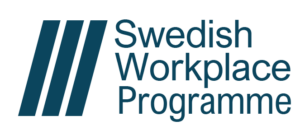SWP contributed to a radio session in Zimbabwe with various experts on how to deal with consequences of COVID- 19.
The radio session shared coping mechanisms for COVID -19 related stress and how best to administer psychosocial support during this time. Dr. Chirisa, a leading psychologist in the country, provided additional material for how employers can support their employees’ mental health during the COVID-19 crisis.
Employers and the world of work are genuinely concerned with the impact of COVID-19 on business operations for many reasons, specifically misinformation as it can lead to increased anxiety levels in the general public and employees. This calls for employers to ensure that infomration is accurate and relayed from trusted and credible sources to reduce anxiety and stress levels within the workplace.
Why employee mental health is important for employers
As companies adjust workplaces with protective measures for employees, new realities such as teleworking, and social distancing are being established. These may have a negative impact on the wellness of employees and their productivity. Hence, it is important for employers to provide both health and staff welfare to employees, including psychosocial support. By providing mental health support for employees, companies can have attainable levels of productivity and maintain the bottom line to ensure business continuity.
What employers can do to protect and provide psychosocial and mental health for employees:
-
Promote trust by communicating
Employers can have regular and clear-cut communication with all staff to reduce anxiety, which may be caused by both external and internal factors.
-
Provide psychosocial support
Employers can include psychosocial wellness support as an aspect of holistic wellness. This support can include referrals to psychologists, toll-free hotlines for psychological services, and a directory of service providers who are available to support employees during COVID -19.
-
Promote dialogue
Employers must be mindful to keep an open line of communication with their workforce regarding expected changes post COVID- 19. These changes, which will affect may possibly become the new reality, will affect the world of work and business operations.
What employers can do to protect mental health and provide psychosocial support for employees
The anxiety levels of the general public and employees are high due to the amount of misinformation from unreliable sources. This calls for employers to ensure the provision of accurate information from trusted sources to reduce anxiety and stress levels within the workplace.
Employers need to have regular and clear-cut communication with all staff to reduce some anxiety which may be caused by rumours of downsizing and retrenchments. If possible, guarantees of the continued working relationship must be made. Where there are risks of separation, measures must be put in place to ensure post separation management in order to fully prepare all for the changes which may come.
Employers must also be mindful in preparing their employees for the changes which are going to be a reality post the COVID- 19 era which will affect the world of work and various business operations.
What employees can do to avoid stress
The employees must be made aware that they have a responsibility for their own health and wee-being. Some interventions that employees practice themselves include simple measures such as:
- Remaining calm and ensuring that they access information from trusted sources.
- Following the protective guidelines which have been shared by WHO and their local governments to ensure correct and consistent use of PPE.
- Being self-aware of any physical or mental changes and to seeking help immediately if they recognise any changes.
- Utilizing resources as psychosocial support network directory and getting help when needed.
- Checking up on family, friends and colleagues as it is important to stay socially connected to maintain the feeling of belonging to a community during COVID-19.
Consider vulnerable groups
Employers must take into consideration vulnerable groups and establish support for these individuals. They need to be mindful to those who have a history of abusive relationships because , home is not a safe space. Where possible, employers should establish special safe places where these individuals can go to access information channels such as websites, radio shows or online support groups for their immediate safety.
Considerations must also be made for those who have disabilities, the elderly, pregnant women and for those with other underlying immune-suppressing medical conditions.
Where possible, establishing toll free hotlines with well-equipped staff cannot be overemphasized. Online platforms can also be established with experts to ensure that employees can access the help they need during COVID-19. Employers are encouraged to think outside the box to protect the health and wellness of all employees.




